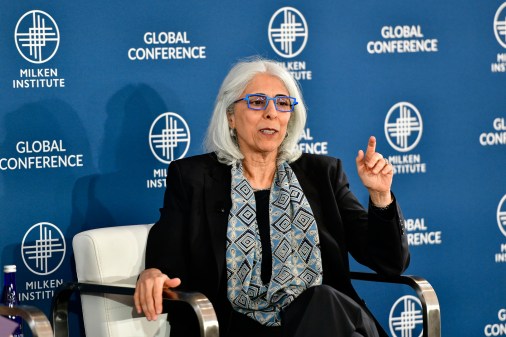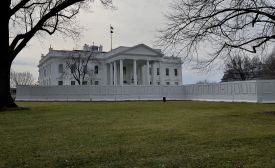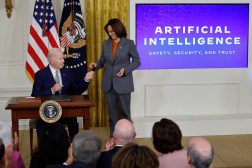 Tom Kalil, OSTP’s deputy director for technology and innovation discusses big data at the Nov. 12 event. (Photo: Colby Hochmuth)
Tom Kalil, OSTP’s deputy director for technology and innovation discusses big data at the Nov. 12 event. (Photo: Colby Hochmuth)The Obama administration pledged $200 million in a big data effort in March 2012. Now, a year and half later, the White House announced 28 partnership commitments had been made with the “Data to Knowledge to Action” initiative.
Tom Kalil, deputy director for technology and innovation for the White House Office of Science and Technology Policy, told dozens of public and private sector organizations at a White House-sponsored event Tuesday about these new commitments that span over several key areas such as health care, sustainability and data analytics.
The event was co-sponsored by OSTP and the Networking and Information Technology R&D program, which represents the technology portfolios of 18 federal agencies.
“America is rich with institutions that are expert at generating data, but as a nation we have not fulfilled our potential to make the most of these data by merging pre-competitive resources, partnering on analytics and sharing lessons learned,” said John Holdren, assistant to the president and director of OSTP.
There are three big data priority areas for the administration: expanding the big data workforce, investing in core technologies and harnessing big data to solve problems, Kalil told FedScoop.
“In 2001, it costs $100 million to sequence a single human genome; it now costs $10,000 and is rapidly heading toward $1,000,” Kalil said. “One thing that’s exciting is to see the pace of technological change and the doors that opens up to Americans to lead longer healthier lives.”
Kalil said with regards to IT generally, the administration has several key projects underway: the president’s BRAIN initiative working on brain research; Start Up America, which works to encourage 21st-century entrepreneurship; and the development of more STEM education and skills.
Kalil said these priorities also include making open government data the new default.
To create a sense of accountability, Kalil said the administration aims to keep lines of communication with these agencies wide open. Getting feedback from nonprofits, think tanks and other users of government data is also expected to track the progress of the data and identify strengths and weaknesses of the data being opened up.
But much more is needed than simply unlocking data, Kalil stressed.
“We believe it’s not enough to just make that data available,” he said. “That there needs to be a community of companies, foundations, nonprofits, individual developers and users who are taking the data and are creating value-added services.”




